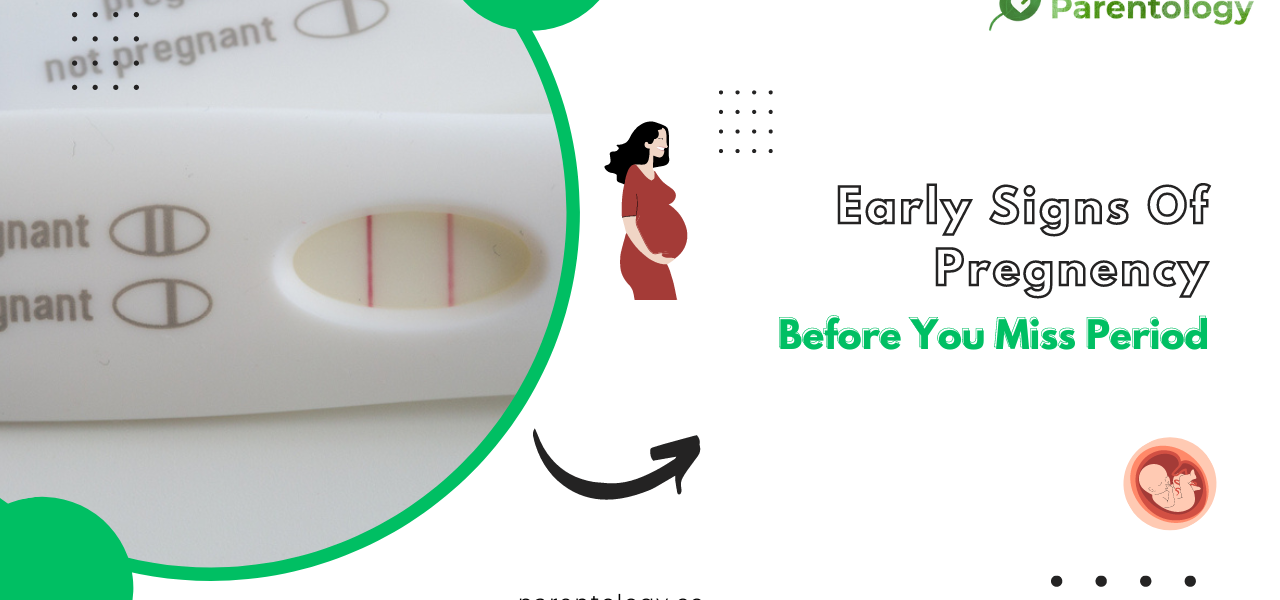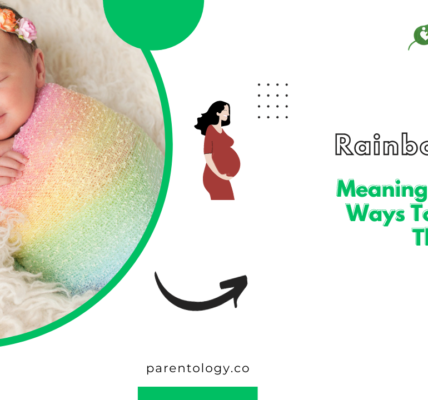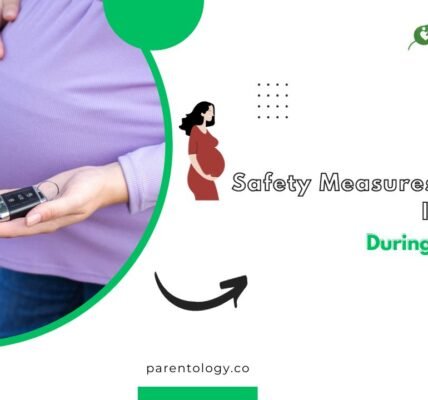Unlocking the Mystery: Symptoms of Pregnancy During Periods
Embarking on the journey of motherhood is a miraculous and transformative experience. While a missed period is a classic indicator of pregnancy, there are subtle signs that may manifest even before this milestone. In this article, we delve into the intriguing topic of symptoms of pregnancy during periods, uncovering 15 early signs that could be the telltale clues you’ve been searching for.
Deciphering the Symptoms of Pregnancy During Periods: Early Pregnancy Clues
-
Unexplained Fatigue:
Overview:
Early pregnancy often brings profound fatigue as your body adjusts to increased blood production, hormonal changes, and the energy demands of nurturing a growing embryo. This fatigue can manifest even with adequate rest, leaving you feeling unusually tired. Ensure you prioritize sufficient rest and listen to your body’s signals during this crucial time.
-
Heightened Sense of Smell:
Overview:
A heightened sense of smell is a common early pregnancy sign, with some women reporting increased sensitivity to odors or experiencing food aversions. Hormonal changes play a role in this heightened olfactory perception, influencing how scents are perceived. Pay attention to any changes in your reaction to smells, as they may provide subtle clues to your pregnancy.


-
Changes in Breast Sensitivity:
Overview:
Hormonal shifts in early pregnancy can lead to changes in breast sensitivity. You may notice tenderness, swelling, or changes in the nipple area. These changes are a result of increased blood flow and hormonal fluctuations preparing your body for potential breastfeeding. Supportive bras and gentle care can help alleviate discomfort.
-
Nausea and Morning Sickness:
Overview:
Nausea and morning sickness, though not exclusive to mornings, are classic signs of early pregnancy. Hormonal changes, particularly elevated levels of human chorionic gonadotropin (hCG), contribute to these symptoms. While these can be challenging, staying hydrated and having small, frequent meals may help manage this common early pregnancy discomfort.
-
Frequent Urination:
Overview:
Increased blood flow to the kidneys and hormonal changes can lead to frequent urination during early pregnancy. As the uterus expands, it puts pressure on the bladder, causing the need for more frequent bathroom trips. Stay hydrated but be mindful of your fluid intake, especially in the evenings, to help manage this symptom.
-
Changes in Appetite:
Overview:
Hormonal fluctuations can influence your appetite during early pregnancy, leading to sudden cravings or aversions to certain foods. Listen to your body’s cues, and focus on maintaining a balanced diet with an emphasis on nutrient-rich foods. Small, frequent meals may be more manageable than larger ones.
-
Mood Swings and Emotional Changes:
Overview:
The rollercoaster of emotions during early pregnancy is often attributed to hormonal changes. Mood swings, irritability, and heightened emotions are common. Establishing open communication with your partner and finding healthy outlets for stress can support emotional well-being during this dynamic period.
-
Abdominal Cramping:
Overview:
Mild abdominal cramping resembling menstrual cramps can occur during early pregnancy as the uterus expands to accommodate the developing embryo. These cramps are typically mild and intermittent but if severe or persistent, it’s essential to consult with your healthcare provider for guidance and reassurance.
-
Changes in Basal Body Temperature:
Overview:
Monitoring basal body temperature (BBT) can reveal subtle changes indicating early pregnancy. A sustained rise in temperature may suggest conception. Charting BBT over time can help identify patterns and provide additional insights into your fertility and menstrual cycle.
-
Spotting or Light Bleeding:
Overview: While not uncommon, spotting or light bleeding can occur in early pregnancy. This can be attributed to the implantation of the embryo into the uterine lining. However, it’s crucial to distinguish between normal spotting and more concerning bleeding. Consultation with a healthcare professional is recommended for personalized guidance.
-
Dizziness and Lightheadedness:
Overview:
Changes in blood circulation and hormonal levels can contribute to dizziness and lightheadedness during early pregnancy. Ensure you stand up slowly, stay hydrated, and consider incorporating small, nutritious snacks throughout the day to manage these symptoms.


-
Constipation or Changes in Bowel Habits:
Overview:
Hormonal changes can impact the digestive system, leading to constipation or changes in bowel habits during early pregnancy. Staying hydrated, consuming fiber-rich foods, and engaging in light physical activity can help promote regular bowel movements.
-
Heightened Body Temperature:
Overview:
Some women may experience a low-grade fever or an elevated body temperature in early pregnancy. While not universally present, monitoring changes in your baseline body temperature can provide additional insights. If you suspect fever, consult with your healthcare provider promptly.
-
Changes in Cervical Mucus:
Overview:
Observing changes in cervical mucus consistency is a subtle yet valuable sign of early pregnancy. The mucus may become thicker, stickier, or have a different texture. Tracking these changes can be part of fertility awareness methods to identify potential pregnancy.
-
Increased Vaginal Discharge:
Overview:
A surge in hormones during early pregnancy can lead to an increase in vaginal discharge. This is a common and normal occurrence as the body adjusts to hormonal changes. Ensure good hygiene practices, and if you notice any unusual or foul-smelling discharge, consult with your healthcare provider for evaluation.
Beyond the Signs: Nurturing a Healthy Pregnancy
1. Early Prenatal Care
Overview:
Once you get the symptoms of pregnancy during periods, seeking early prenatal care is crucial. Schedule a visit to your healthcare provider for confirmation, guidance, and to establish a care plan.
2. Balanced Nutrition
Overview:
Nourish your growing baby with a well-rounded diet rich in essential nutrients. Consider incorporating prenatal vitamins and maintaining a healthy, balanced lifestyle.
Emotional Well-being During Early Pregnancy
1. Open Communication
Overview:
Share your feelings and experiences with your partner, family, or a trusted friend. Open communication is vital for emotional support during this transformative time.
2. Mindfulness Practices
Overview:
Incorporate mindfulness techniques, such as meditation and deep breathing, to alleviate stress and foster a positive mindset throughout your pregnancy.
Planning for Parenthood
1. Creating a Supportive Environment
Overview:
Surround yourself with a supportive network of friends and family who can offer guidance, assistance, and encouragement as you embark on this new chapter.
2. Educate Yourself About Pregnancy
Overview:
Empower yourself with knowledge about pregnancy, childbirth, and postpartum care. Attend prenatal classes, read reputable resources, and stay informed about your pregnancy journey.
Preparing for the Next Steps
1. Confirming Pregnancy with a Healthcare Provider
Overview:
If you suspect and get symptoms of pregnancy during periods, schedule a visit to your healthcare provider for confirmation, guidance, and to establish a care plan tailored to your unique needs.
2. Taking a Home Pregnancy Test
Overview:
Home pregnancy tests are readily available and can provide quick results. Follow the instructions carefully, and consider taking the test in the morning for the most accurate results.


Embracing the Journey: A Guide to the Months Ahead
1. Monitoring Your Pregnancy Progress
Overview:
As your pregnancy progresses, your body undergoes remarkable changes. Regular prenatal check-ups, ultrasounds, and monitoring fetal development become essential for a healthy pregnancy.
2. Emotional Well-being During Pregnancy
Overview:
Continue prioritizing emotional well-being throughout your pregnancy journey. Communicate openly, practice self-care, and seek support when needed to maintain a positive mental state.
Nutritional Guidance for a Healthy Pregnancy
1. Dietary Adjustments
Overview:
Tailor your diet to meet the evolving nutritional needs of pregnancy. Include a variety of foods rich in vitamins, minerals, and nutrients crucial for both you and your baby.
2. Hydration and Pregnancy
Overview:
Staying well-hydrated is vital during pregnancy. Adequate water intake supports amniotic fluid levels, aids digestion, and helps prevent common discomforts.
Preparing for Labor and Delivery
1. Childbirth Education Classes
Overview:
Consider enrolling in childbirth education classes to gain insights into labor, delivery, and postpartum care. These classes empower you with knowledge and confidence.
2. Creating a Birth Plan
Overview:
Work with your healthcare provider to create a birth plan that outlines your preferences for labor, delivery, and postpartum care. Flexibility is key as birth plans may evolve.
Postpartum Preparations
1. Postpartum Recovery
Overview:
Understand the postpartum recovery process and equip yourself with essentials for a comfortable and supported recovery period after childbirth.
2. Establishing a Support System
Overview:
As you approach your due date, ensure your support system is in place. Communicate your needs and lean on friends and family for assistance during the postpartum period.
Beyond Pregnancy: Nurturing a Lifelong Bond
1. Early Bonding with Your Baby
Overview:
Initiate bonding with your baby even before birth through activities like talking, singing, and gentle belly rubs. This establishes a connection that continues to grow after delivery.
2. Breastfeeding and Newborn Care
Overview:
Educate yourself on breastfeeding techniques and newborn care essentials. Seek guidance from lactation consultants and healthcare providers to ensure a smooth transition into parenthood.
Navigating Parenthood’s Evolution
1. Embracing the Parenthood Journey
Overview:
As your baby grows, so does your role as a parent. Embrace the evolving journey, celebrating milestones, fostering independence, and adapting to the ever-changing needs of your child.
2. Encouraging Developmental Milestones
Overview:
Stay informed about your baby’s developmental milestones and create a nurturing environment that encourages exploration, learning, and healthy social development.
Continuing Education and Support
1. Parenting Classes and Workshops
Overview:
Consider enrolling in parenting classes and workshops to enhance your parenting skills. These resources provide valuable insights into various parenting approaches and strategies.
2. Building a Parenting Support Network
Overview:
Connect with other parents through local parenting groups, online forums, and social media communities. Sharing experiences and tips can strengthen your support network.
FAQs: Navigating the Path about Symptoms of Pregnancy During Periods
1. Can I experience symptoms of pregnancy during periods?
While some women may experience light bleeding or spotting, a full period during pregnancy is uncommon. If in doubt, consult with a healthcare professional.
2. How soon can pregnancy symptoms manifest after conception?
Pregnancy symptoms can appear as early as a few days after conception, though many women may not notice until a week or two later.
3. Are these symptoms exclusive to pregnancy or could they indicate other conditions?
Some symptoms may overlap with other conditions. If in doubt, a pregnancy test or consultation with a healthcare provider is recommended.
4. Can stress or lifestyle changes mimic pregnancy symptoms?
Stress and lifestyle changes can impact the body, leading to symptoms similar to early pregnancy. However, a healthcare professional can provide clarity through tests.
5. Are these signs consistent for all women?
Every woman’s body responds differently to pregnancy. Some may experience all symptoms, while others may only notice a few.
6. Can medication interfere with early pregnancy symptoms?
Certain medications can influence hormonal balance. It’s advisable to consult with a healthcare provider about any concerns regarding medication and potential pregnancy.
7. Is it possible to have a negative pregnancy test but still be pregnant?
Yes, it’s possible to receive a negative test result, especially if taken too early. Waiting a few days and retesting or consulting with a healthcare professional is recommended.
8. Can I experience morning sickness at night?
Yes, morning sickness can occur at any time of the day. It is not exclusive to mornings.
9. How can I differentiate between premenstrual symptoms and early pregnancy symptoms?
While some symptoms overlap, early pregnancy symptoms may feel more intense or different than typical premenstrual symptoms. A pregnancy test can provide clarity.
10. Can I experience all 15 early pregnancy symptoms simultaneously?
It’s uncommon to experience all symptoms at once. Each woman’s body responds uniquely, and symptoms may vary in intensity.
Conclusion: The Early Chapters of Your Pregnancy Journey
As you navigate the early chapters of potential parenthood, these subtle symptoms of pregnancy during periods can serve as your guide. While each woman’s journey is unique, recognizing these early symptoms can be a source of empowerment and understanding. If you suspect you might be pregnant, consider taking a home pregnancy test or consult with a healthcare professional for personalized guidance.
For more insights into the journey of pregnancy and parenthood, explore Parentology, a platform dedicated to providing valuable information and support for expecting and new parents. Embrace the mysteries, celebrate the possibilities, and cherish each moment of your extraordinary pregnancy journey.
Infographics:



